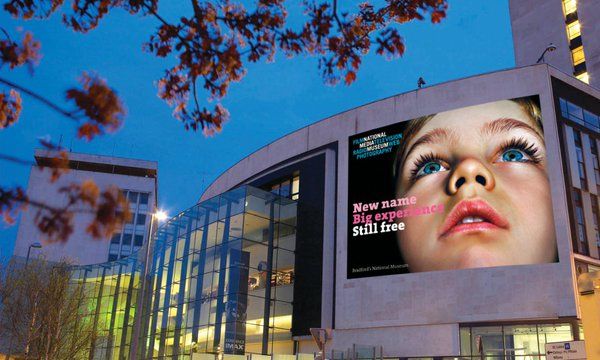
The decision of the London-based Trustees of the Science Museum to drag the great collections of photography in Bradford to metropolitan London is hugely misguided.
I am viewing this as a former Trustee of the National Galleries of Scotland, the Victoria and Albert Museum and the British Museum. Over the years I have witnessed and taken part in some ill-judged decisions. This ranks as the most damaging to our wider national concerns. In particular, it flies in the face of the very successful policy to expand the operations of the "Nationals" to other geographical areas, not least that of the "Northern Powerhouse".
The National Museum of Photography, Film & Television (re-branded trendily as The National Media Museum) has a high reputation throughout the world for the displaying and researching of photography. It has served in effect as the much-needed but unconstituted "National Museum of Photography". It houses wonderfully wide-ranging collections, including that of the Royal Photographic Society (the voice of which seems to have been gagged). It has been staffed by some of the greatest international experts, and has been acknowledged as a world leader in its field. The Science Museum is already disposing of the staff and is on course to ship out the items that have been cherished over the years in Bradford.
Visiting Bradford has been a delight, if not only to see a series of notable exhibitions. The staff have acted as missionaries for the art of photography, providing a dedicated service far beyond bringing out catalogued items to individual enquirers.
Can the Science Museum be relied on? In 2013, with much trumpeting they announced the opening of the Media Space, ostensibly to display material from Bradford, supported by such luminaries and benefactors as Michael and Jane Wilson, who own a magnificent collection of photographs. We now learn that the 'Media Space' is to close later this year. I wonder how Wilson, producer of the Bond films, along with other benefactors and sponsors, views this volte face .
The Victoria and Albert Museum, the planned recipient, has played its role in historic photography, as has the National Portrait Gallery in London, both in their distinctive ways. But the V&A is not in the best position to serve as the central custodian of the national collection. It has neither the readily available exhibition space, nor the staff resources to emulate what Bradford has achieved. I rather imagine the major collection of photographic equipment will disappear into the dreary storage facilities in Blythe Road. For such a huge, diverse and compartmentalised collection as the V&A, photography will inevitably become a small cog in its ponderous machinery, losing what has been its very distinctive character and vitality in Bradford.
The only virtue of the present mess is that it gives us an opportunity to consider how we can create a national museum of photography on the base that's been established in Bradford.
This is not to centralise all the national holdings in one place – any more than all the national collections of paintings are held in one mega-venue - but rather to take advantage of what has already been achieved to consolidate and extend our international leadership.
Photography is a universal visual art that boasts its own distinctive history from at least 1835 - it deserves better than to be steamrollered under the ubiquitous modern category of "media". It is time that the various interested parties conspire together with the Science Museum to take a genuinely creative decision about a national strategy for our holdings of photography.
Uncommon Knowledge
Newsweek is committed to challenging conventional wisdom and finding connections in the search for common ground.
Newsweek is committed to challenging conventional wisdom and finding connections in the search for common ground.
About the writer
To read how Newsweek uses AI as a newsroom tool, Click here.








